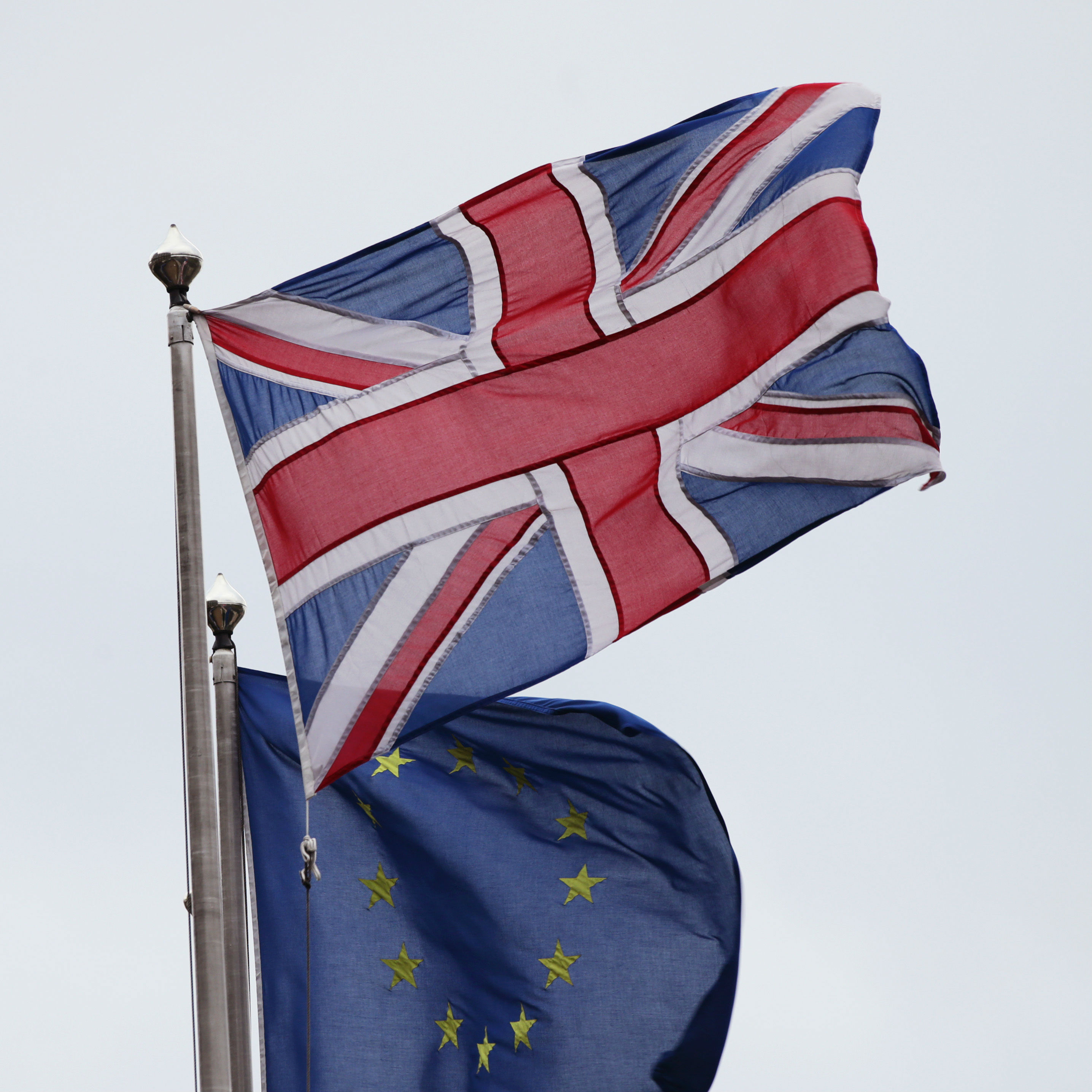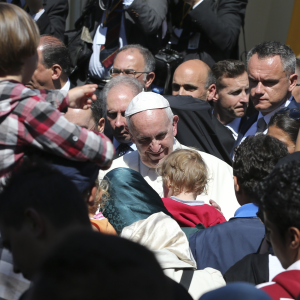In what will be seen as a defining gesture of his papacy, Pope Francis today returned to the Vatican with a dozen Muslim refugees after a visit to the Greek island of Lesbos, an arrival point for thousands seeking asylum in Europe.
Francis flew back to Rome this afternoon with three Syrian families, including six children, aboard his papal plane. All of them were living in camps on the Greek island having fled their war-torn country after their homes had been bombed - one family came from a part of Syria occupied by Islamic State.
The plight of migrants has become a major theme of Francis’ pontificate and his impromptu visit to Greece, announced only 10 days ago, is a powerful sign of his concern for those fleeing their countries to due to war, persecution and poverty. Francis’ concern for migrants was shown early on when he decided that his first visit outside of Rome as Pope would be to Lampedusa, the island in southern Italy which became the arrival port for many coming from North Africa.
“I have wanted to visit Lesbos ever since migrants arrived here seeking peace and dignity,” the Pope said today. Later, when speaking to those being held in a camp in Moria on the Island, he explained his reason for travelling to Greece: “I want to tell you that you are not alone. In these weeks and months, you have endured much suffering in your search for a better life.”
The decision to take refugees back with him to the Vatican shows both that the Church is able to practise what it preaches and lays down a challenge to political leaders to come up with policies to accommodate new arrivals.
Francis has repeatedly called for more to be done to welcome migrants arriving in Europe including urging parishes and monasteries to house at least one family of refugees.
Along with the twelve new arrivals, the Vatican is already hosting two refugee families, with one from Syria and another from Eritrea. The 12 arriving today from Lesbos will be cared for by the Holy See although the initial assistance will be provided by the Community of Sant’Egidio, a Catholic group dedicated to building peace and serving the poor.
Going to Greece threw the Pope into the heart of the political debate over how to respond to refugees. Last month a European Union deal was struck ensuring Greece sends all “irregular” migrants back to Turkey, a move that the Holy See has criticised. Many believe the deal is primarily deterrent: in the week to the 13 April, arrivals in Greece were 76% lower than the previous week, according to the International Organisation for Migration.
“The worries expressed by institutions and people, both in Greece and in other European countries, are understandable and legitimate,” the Pope said in a speech to the people of Lesbos. “We must never forget, however, that migrants, rather than simply being a statistic, are first of all persons who have faces, names and individual stories.”
Around 3,000 migrants are being held in a camp in Moria, which the Pope also visited. “Do not lose hope,” Francis told them. “The greatest gift we can offer to one another is love.”
The Pope arrived this morning at Lesbos Mytilene airport where he was greeted by Greek Prime Minister Alexis Tsipras, Patriarch Bartholomew, the “first among equals” leader of the Orthodox Church, and the Archbishop of Athens Ieronimos II. In his speech at the camp, Patriarch Bartholomew told the residents: "The world has not forgotten you. The world will be judged by the way it has treated you.”
Along with the humanitarian focus of his trip there was also an ecumenical one with the three leaders issuing a joint declaration calling for the international community to tackle the root causes of the “colossal humanitarian crisis” such as tackling conflict in the Middle East.




 Loading ...
Loading ...